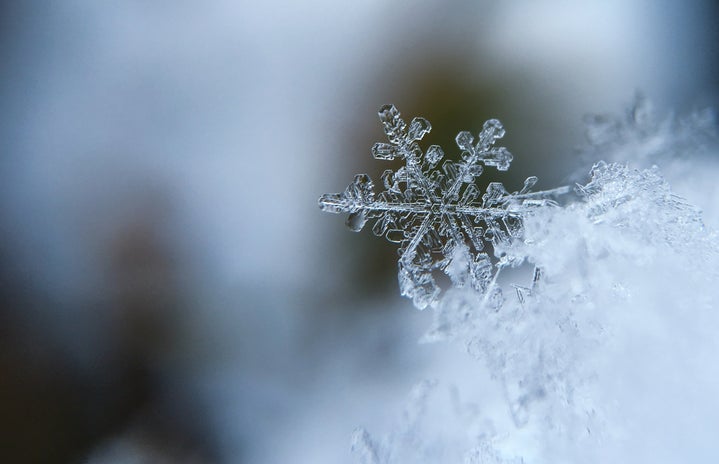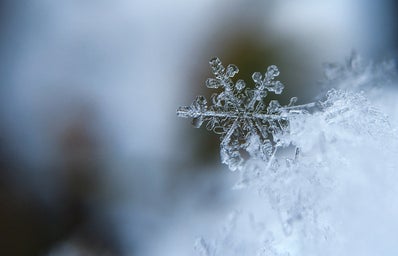Our relationships are like snowflakes; no two are alike. You can form many attachments: you may have many friends, many best friends, many family members like cousins, uncles, aunts, siblings, and parents, but each of these relationships is unique in and of itself and they are not interchangeable.
This idea that our relationships are unique, that the person cannot be replaced, comes from the American-Canadian developmental psychologist Mary Ainsworth. Ainsworth’s research focused primarily on attachment theory, and she designed the Strange Situation—something that anyone who’s ever taken a developmental psych course is sure to be familiar with. Basically, the Strange Situation observes and analyzes the emotional attachment between a toddler and their primary caretaker. But what’s key here from Ainsworth’s research is that each of our relationships is completely unique and they cannot be replicated with others, like snowflakes, and when one of those snowflakes melts and goes away, it’s an incredibly painful mourning process.
Okay, so maybe comparing the loss of a close relationship to a melting snowflake doesn’t quite capture how dreadful this process actually is, but you get the point.
Losing my high school best friend was extremely traumatic for me. We were coming up to our 10th anniversary of friendship, and she was more like a sister to me (and a second daughter to my parents) than a friend. At 17, I came out to her as bisexual and told her I had a girlfriend. Her reaction was less than desired: she said “oh” and proceeded to find somewhere else to sit at lunch from then on. As cliché as it sounds, our relationship really was never the same once I came out to her. I’m unsure if she knew her actions were phobic and hurtful, as a mutual friend communicated to me that she “just wanted her friend back.”
“Just wanted her friend back”? What was that even supposed to mean? I hadn’t gone anywhere! I did understand that it would take her a while to wrap her head around my coming out, after we had talked for years about having boyfriends and marrying husbands, going on couples vacations. Maybe she was even hurt that I hadn’t told her about my sexuality sooner—which is a whole other phobic issue I won’t address in this article. But after a couple of months there was no sign that she was coming around.
I will admit that as the months went on and my frustration with her mounted, I didn’t act in the best ways, either. She ignored me, so I decided to ignore her. She chose to spend time with others, so I did, too. And we definitely did not communicate properly, choosing rather to hide our feelings from each other. Finally, it came to a heated blow over text when I finally told her everything I’d been feeling. She basically threw it back in my face, saying that she was the one who was hurting and it was my fault. I don’t doubt that I hurt her feelings with my actions and words, and I can take responsibility for that now. It’s safe to say that neither one of us got any closure from this long-term relationship, and feelings had been hurt on both sides. Our precious snowflake hadn’t just melted; it’d been thrown in the fire and completely extinguished.
After losing her, I felt completely lost. I had my girlfriend, but a significant other isn’t quite the same as a best friend (in my opinion, at least). My ex-best friend would frequently show up in my dreams, the vision of her taunting me. Any time I started getting close to another female friend, I would try to force the friendship and come on way too strongly in the hopes that she would be my new best friend and fill the void left by my ex-bff. This happened for a number of years, where I would come on strongly and end up scaring my new friend away, before I realized that I was trying to mould these new relationships to fit the exact snowflake-shape in my soul that had grown dusty with cobwebs, and that this was simply impossible.
I’ve accepted that I will never have a relationship quite like the one I had with my ex-best friend. Sometimes that still makes me sad, but I’m much less angry and hurt about it now that time has passed and I’ve done a lot of self-reflection. And I have new, beautiful relationships with others who are supportive, care about me just as I am, and who accept my growth as an individual, too. Learning about Mary Ainsworth’s research also helped in this healing process. It gave me the little bit of closure I was never able to get, as I realized that I had to completely let this old relationship go—to stop holding onto that snowflake water in the hopes that a similar cold breeze would blow it back into shape—because I was never going to get it back. It’s a hard realization, but it allowed me to finally let go of those last little droplets, and to make room for more snowflakes in my life.
Even through all the hurt and anger, I have never regretted losing my best friend because she displayed a phobic attitude toward me and I know I deserve better than that from my friends, but people lose relationships for a lot of other reasons, too. No matter the reason, it never makes this loss any easier to bear. But I’m here to tell you that it’s okay to let go of that snowflake water; it’s okay to be sad and angry that it will never form back into its shape. And it’s okay to take your time with it; it’s a grieving process, after all. There are other snowflakes out there waiting for you—just remember to not force them into a predetermined mould and to accept them as the beautifully unique snowflakes that they are.


